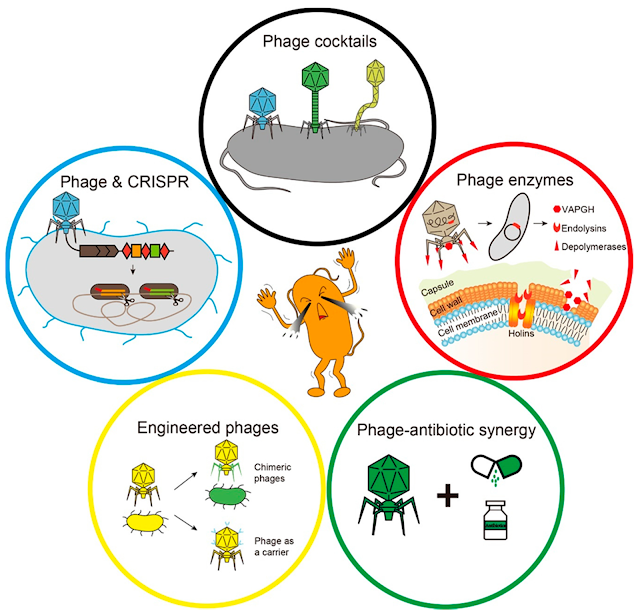Many scientists, particularly those working on antimicrobial resistance, want to create the most effective anti-superbug weapon (multidrug-resistant strains of bacteria). Meanwhile, the central question was whether phages alone could be used for treatment, with some negative characteristics impeding phage therapy regardless of its efficacy. When using a higher concentration of antibiotics for treatment, the world is seeing an increase in resistance as well as a high level of toxicity. Many researchers have been experimenting with the combined action of an antibiotic and a bacteriophage in order to create the best weapon capable of clearing bugs while causing the least harm to the patient. However, the main issue was whether they were antagonistic or synergistic.
Antagonism and synergism
Antagonism occurs when two or more drugs have opposing effects on the body. Antagonism to one or more drugs can prevent or reduce their efficacy. The antagonistic relationship, in this case, will be between a phage preparation and a drug. While synergism is a drug interaction in which the total effect of the drugs is greater than the sum of their individual effects. A synergistic effect can be harmful at times.
Is phage-antibiotics interaction synergistic or antagonistic?
The majority of studies on phage antibiotics found synergistic effects when phage and antibiotics were combined. Under certain conditions, phages have an adjuvant effect by lowering the Minimum inhibitory concentration (MIC) for drug-resistant strains. However, some studies have discovered antagonism between phage and antibiotics.
Furthermore, the mechanism of bacterial inhibition by the antibiotic class paired with the phage is heavily reliant on synergistic and antagonistic interactions. The emergence of resistant cells is suppressed when Synergism is observed. Antibiotic synergism effects differ between bacteriophages.
Effects of antibiotics on phages
The drug's mechanism of action determines how the drug affects phages. Antibiotics work in a variety of ways; some antibiotics can harm viral particles, such as phages, while others have the opposite effect. Prior to starting therapy, scientists conduct laboratory tests to ensure that the combined effects are synergistic.
Advantages of Phage-Antibiotics synergism
- Reduce an antibiotic's potential toxicity concentration.
- Minimize the phage therapy setbacks
- Increase the likelihood of bacteria responding to treatment.
- In addition, the phage can act as an "adjuvant."
The ability of sub-lethal concentrations of certain antibiotics to significantly stimulate the host bacteria's production of virulent phage is defined as phage-antibiotic synergy (PAS). Phage-antibiotic Synergism may open up the possibility of developing treatment strategies for infections caused by troublesome bacteria.
Feel free to leave your comment below in the comment section. 🙏 Thanks 👍





Wow! great article. Thanks for sharing
Worth sharing.....
Your article helped me a lot, is there any more related content? Thanks!